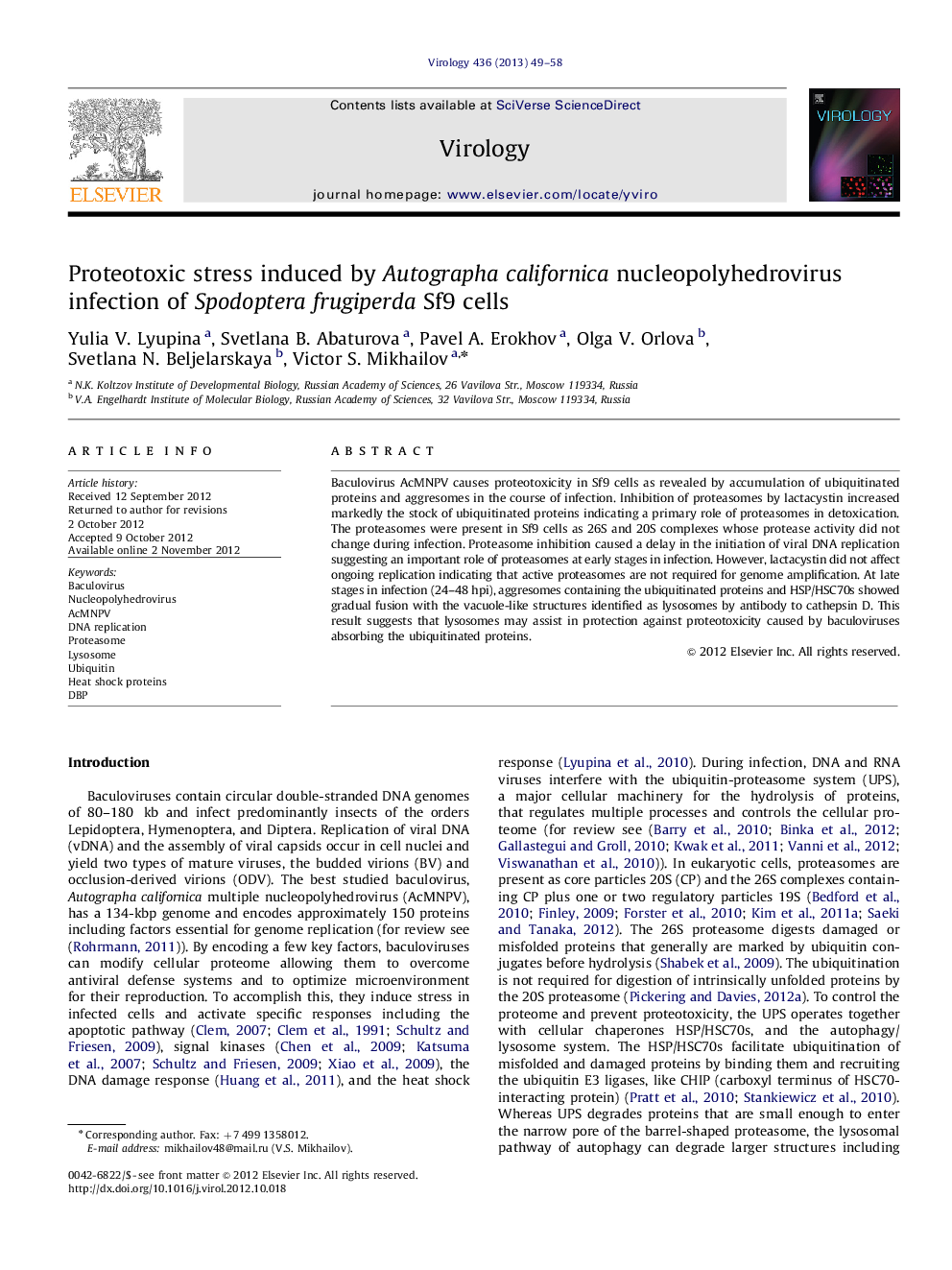| Article ID | Journal | Published Year | Pages | File Type |
|---|---|---|---|---|
| 6141026 | Virology | 2013 | 10 Pages |
Baculovirus AcMNPV causes proteotoxicity in Sf9 cells as revealed by accumulation of ubiquitinated proteins and aggresomes in the course of infection. Inhibition of proteasomes by lactacystin increased markedly the stock of ubiquitinated proteins indicating a primary role of proteasomes in detoxication. The proteasomes were present in Sf9 cells as 26S and 20S complexes whose protease activity did not change during infection. Proteasome inhibition caused a delay in the initiation of viral DNA replication suggesting an important role of proteasomes at early stages in infection. However, lactacystin did not affect ongoing replication indicating that active proteasomes are not required for genome amplification. At late stages in infection (24-48Â hpi), aggresomes containing the ubiquitinated proteins and HSP/HSC70s showed gradual fusion with the vacuole-like structures identified as lysosomes by antibody to cathepsin D. This result suggests that lysosomes may assist in protection against proteotoxicity caused by baculoviruses absorbing the ubiquitinated proteins.
⺠We examined the proteasome and lysosome systems in Sf9 cells infected with AcMNPV. ⺠Proteasome inhibition prompts a delay in the initiation of viral DNA replication. ⺠AcMNPV causes proteotoxicity in cells and accumulation of ubiquitinated proteins. ⺠Ubiquitinated proteins form aggresomes in cytoplasm and associate with lysosomes.
